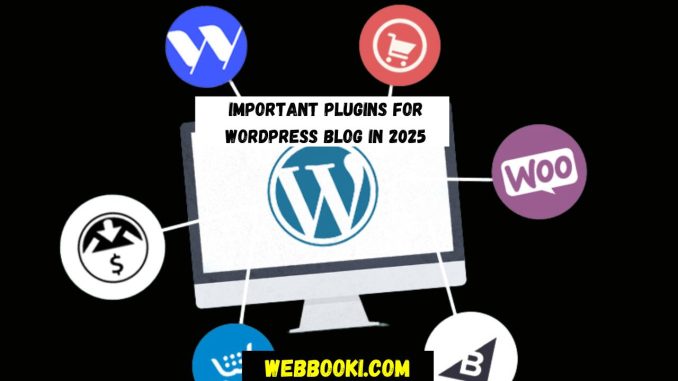
The selection of plugins, when running a WordPress blog, is important in developing the functionality and enhancing your website’s performance to even keeping it safe. A list of the key plugins every WordPress blogger should be using on their blog follows:
1. Yoast SEO
SEO plays a great role in driving traffic to your WordPress blog. Yoast SEO is one of the finest and most popular plugins that helps you optimize your website for search engines. It helps you in on-page optimization, like optimizing titles, meta description, and keywords, that ensure higher ranking in results from any search. Furthermore, readability analysis by Yoast enables you to enhance the quality of your writing.
2. Akismet Anti-Spam
This quickly fills up your blog comments and hinders you from relating well with your readers. It’s absolutely important to have this Akismet plugin installed that keeps spam away and filters real comments on your post, so you don’t end up spending too much valuable time moderating comments yourself.
3. Jetpack
Jetpack is a multifunctional plugin, with a suite of tools aimed at enhancing your WordPress blog. It provides essential features, ranging from website performance monitoring to security enhancements and backup solutions. Besides this, Jetpack has great functionality for social sharing, related posts, and image optimization to increase user engagement and speed up your site.
4. WP Super Cache / W3 Total Cache
Web performance is one of the major influencing factors in user experience and even SEO. Caching plugins, including WP Super Cache and W3 Total Cache, all will help increase your website’s load time by keeping static copies of your pages. These reduce the server load while enhancing the site performance-ensuring that your readers don’t have to wait long enough for content to load.
5. UpdraftPlus
Backups are routine activities that allow you to keep your blog safe with regard to its contents and data. The popular backup plugin, UpdraftPlus, auto backs up your site; that is, posts, pages, themes, and plugins. It lets you save your backups on remote locations like Google Drive, Dropbox, or Amazon S3, so when things go wrong, at least the content is safe.
6. Elementor
Elementor is the tool of your choice if you would wish to create awesome pages for your WordPress blog with ease and without coding. Elementor is a drag-and-drop page builder that can easily let you design custom pages and posts using an intuitive interface. Whether you are designing landing pages, portfolios, or service pages, Elementor just makes it simple and ready in minutes.
7. WooCommerce
Therefore, the best plugins to be added from bloggers who want to market online sale of products or services within the site would be by WooCommerce. It turns WordPress, quite easily, into an electronic store. With several facilities to manage your inventory and payments, shipping, even tax, WooCommerce would best suites interested bloggers in electronic commerce as well.
8. Smush Image Compression and Optimisation
If not optimized, images can really slow down your website. Smush is among the powerful plugins that will auto-compress and optimize your images while saving the quality of your image. These help reduce page load time, further improving user experience and SEO rankings. Success of your WordPress blog is in choosing the right set of plugins.
Conclusion
These include Yoast SEO, Akismet, and Jetpack; the set of plugins which enhance the performance, security, and search visibility of a site. The essential plugins listed above will help bloggers improve their sites and make the interaction with readers more user-friendly.
Leave a Reply